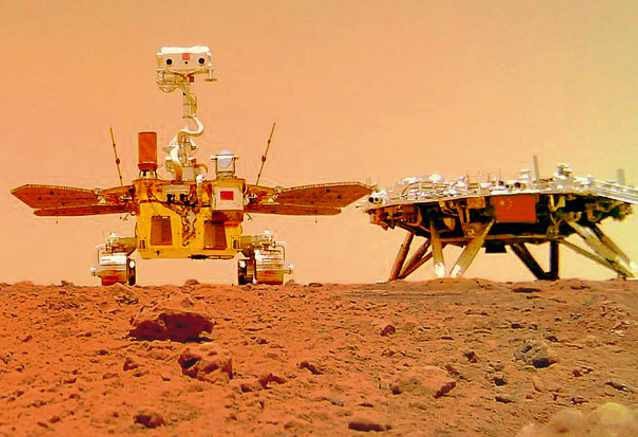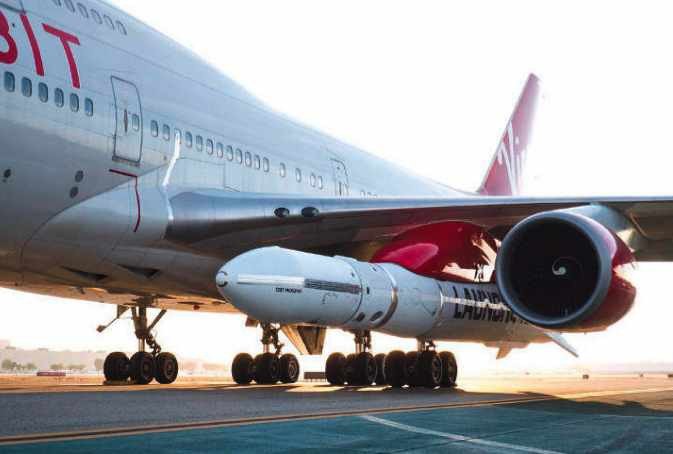
Chinese rover fails to wake
China’s Zhurong Mars rover was supposed to wake up from its winter hibernation at the end of 2022 but has failed to make contact with Earth. The problem is likely to be dust on the solar panels preventing them from charging, though it is possible the rover could reestablish contact as the planet continues to warm up.
Early opening for barred galaxies
Barred spiral galaxies like our own Galaxy – where the central regions are stretched out into bars – existed when the Universe was just three billion years old, according to JWST observations. The bars feed gas into the centre of galaxies, so tracking them through cosmic history is vital to understanding how galaxies grow.
Planet spirals to its doom
A planet spiralling towards its star has been found for the first time, offering a window into Earth’s future when the Sun reaches the end of its life. The planet, Kepler-1658b, is about the size of Jupiter and will collide with its star in less than three million years.

Failure to launch
The first space launch from UK soil ended in failure on 9 January. The Virgin Orbit flight took off from Spaceport Cornwall at 10pm and climbed to 35,000ft. Once at altitude, it dropped the LauncherOne rocket, which experienced an anomaly with its second stage, resulting in the rocket’s failure to reach orbit.
Flare warning
Bright but tiny flashes on the Sun’s surface could help astronomers predict when the next solar flare is about to erupt. Data from NASA’s Solar Dynamics Observatory revealed that just before the Sun produced a flare, there were small-scale flashes in the upper atmosphere above where the release was about to take place.
Ryugu’s ancient start
Carbonate minerals found in samples from asteroid Ryugu are millions of years older than previously thought. The samples brought back by the Hayabusa 2 craft suggest water interacted with rock very early in our Solar System, with temperatures dropping low enough for water to remain liquid earlier than initially believed.